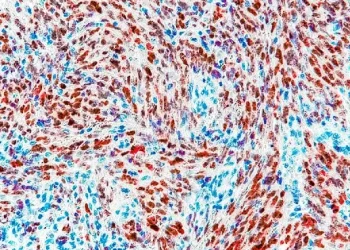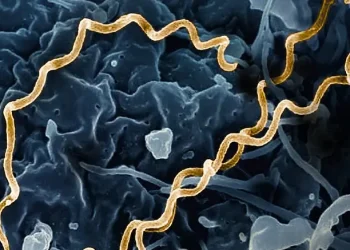In a global first, an infant with a rare genetic liver disease has been successfully treated using a personalized CRISPR gene therapy—designed and delivered in just six months.
The treatment, developed by U.S. researchers with NIH support, marks a turning point in precision medicine.
Introduction
A baby diagnosed with carbamoyl phosphate synthetase 1 (CPS1) deficiency shortly after birth has become the first human to receive a fully personalized CRISPR gene therapy.
Developed at the Children’s Hospital of Philadelphia (CHOP) and the University of Pennsylvania (Penn), the therapy corrected a fatal mutation in the infant’s liver cells, offering a potential new pathway for treating hundreds of rare diseases.
What Is CPS1 Deficiency?
CPS1 deficiency is a rare, inherited disorder that prevents the body from processing ammonia—a byproduct of protein metabolism.
In healthy individuals, the liver breaks down excess ammonia, but patients with this condition cannot. Ammonia builds up rapidly and becomes toxic, leading to severe brain damage, coma, or even death.
Treatment usually involves a protein-restricted diet and medications to manage ammonia levels. However, this approach is temporary. Most patients eventually require a liver transplant—a risky option, especially for infants.
The Groundbreaking Treatment
The NIH-supported team used a CRISPR-based platform to design a personalized therapy in record time.
It targeted the specific genetic mutation responsible for CPS1 deficiency and corrected it in the child’s liver cells. Unlike traditional gene therapies, this method allowed for multiple low-risk doses.
How the Therapy Was Delivered
-
Initial dose: Administered at six months of age
-
Follow-up dose: Increased once early safety was confirmed
-
Response: Immediate signs of improvement in ammonia tolerance and protein intake
This precision approach ensures that only non-reproductive (somatic) cells are affected, meaning the changes won’t pass on to future generations.
Signs of Success
Within weeks, the child began tolerating more protein in their diet. Medication to manage ammonia was gradually reduced.
The most compelling evidence came when the child endured two common illnesses—a cold and a gastrointestinal infection—with no complications, a scenario that would typically cause a crisis in CPS1 patients.
CRISPR as a Rapid-Response Platform
The platform used in this treatment may soon allow doctors to customize gene therapies in weeks rather than years. Its modular design means it can be adapted quickly to treat other rare disorders.
Advantages of CRISPR in Rare Disease Treatment:
| Feature | Benefit |
|---|---|
| Precision targeting | Corrects specific mutations with minimal off-target effects |
| Reusable platform | Speeds up development for new conditions |
| Somatic cell targeting | Avoids passing changes to future generations |
| Scalable manufacturing | Can potentially treat broader patient groups |
Funding and Research Collaboration
The research was funded by the NIH’s Somatic Cell Genome Editing program and supported by the CHOP Research Institute.
Additional resources came from industry partners including Acuitas Therapeutics and Integrated DNA Technologies.
“Gene editing built on reusable components and rapid customization promises a new era of precision medicine,”
said Dr. Joni L. Rutter, director of NIH’s National Center for Advancing Translational Sciences.
A Glimpse Into the Future
This case is more than a medical milestone—it represents the start of a new era in medicine. Rapidly designed therapies like this may become standard for treating rare diseases that were once considered untreatable.
Takeaways:
-
A personalized CRISPR therapy saved an infant with CPS1 deficiency.
-
Development and delivery took just six months.
-
The platform could soon treat a wide range of rare genetic disorders.
Looking Ahead
As research evolves, personalized gene therapy could transform how we approach rare diseases—shifting from reactive to proactive care.
To explore the future of gene editing and the science behind it, follow updates from NIH-supported studies and academic research institutions leading the charge in precision medicine.
Sources: National Institutes of Health.
Prepared by Ivan Alexander Golden, Founder of THX News™, an independent news organization delivering timely insights from global official sources. Combines AI-analyzed research with human-edited accuracy and context.









